IUC, Dubrovnik; WAAS-Club of Rome Joint Roundtable
|
|
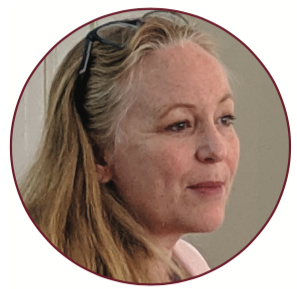 On March 21-22, 2019 WAAS partnered with the Club of Rome (COR) to conduct a two-day interdisciplinary roundtable at the Inter-University Centre, Dubrovnik to explore profound questions and catalytic ideas regarding the evolution of global society and strategies to accelerate the transition to a human-centered, inclusive and sustainable development paradigm for humanity. Forty scientists and sustainability practitioners from WAAS and COR exchanged views in a highly interactive roundtable format designed by Carlos-Alvarez Pereira, which included two Warm Data Labs facilitated by Nora Bateson. On March 21-22, 2019 WAAS partnered with the Club of Rome (COR) to conduct a two-day interdisciplinary roundtable at the Inter-University Centre, Dubrovnik to explore profound questions and catalytic ideas regarding the evolution of global society and strategies to accelerate the transition to a human-centered, inclusive and sustainable development paradigm for humanity. Forty scientists and sustainability practitioners from WAAS and COR exchanged views in a highly interactive roundtable format designed by Carlos-Alvarez Pereira, which included two Warm Data Labs facilitated by Nora Bateson.
The roundtable was framed within the context of three major threats confronting humanity today: Climate Change, the Nuclear Threat, and the Cognitive Technologies of the 4th Industrial Revolution.
|
The search for effective, comprehensive, lasting solutions highlighted the need for a fundamental shift away from the dominant world views based on a reductionist, materialist, mechanistic viewpoint to a synthetic, integrated perspective that recognized the interdependence and complexity of phenomena; the identification of blind spots which prevent us from discovering solutions to persistent problems; the affirmation of a value-based, human-centered perspective on which alone an inclusive and sustainable global society can be founded; the need for a whole system approach that recognizes the complex interdependence which makes piecemeal strategies ineffective; the need for a theory of change that describes the driving forces and processes that drive social evolution; and the need to draw on insights from many different cultural perspectives founded on the unity in diversity of humanity’s rich evolutionary experience. Participants agreed on the need for a fundamental shift in thinking and values as essential conditions for an effective transition. The remainder of this report consists of comments by individual participants.
|
Excerpts from the Report titled
Emerging New Civilization Initiative (ENCI): Emergence from Emergency
|
|
In October 2018, the Club of Rome adopted the “Emerging New Civilization Initiative (ENCI)” as one of its core themes. The “New Paradigm Project” of WAAS, launched at the UN in Geneva in 2013, is being developed in parallel. They seek to explore a paradigm shift towards seeing the world as an interconnected whole and bring such a view into the mainstream discourse of global sustainability transformation. It will substantially contribute to overcoming the current value crisis and work towards making humankind a collectively responsible actor in the era of the Anthropocene. It is about overcoming together our many high-speed gridlocks and frustrations, because we have to rethink our problems in frameworks different from those which created them.
This endeavor is all about accepting the reality of complexity and the need for system change. Cognitive processes are themselves complex: reality is not fully accessible to our conscious understanding. Ignoring complexity would mean dismissing life, which can only bring tragedies. How can we purposefully change a complex living system of which we are part? Can we be reliable observers of our interdependencies and ourselves? Can we be external observers of a system, which we aspire to transform as if it were a mechanism that we can tune? We have here a double bind, two contradictory injunctions at the same time: recognize complexity around us and create change as if complexity were reducible. We like to say we are systemic in our thinking and a second later, we look for linear solutions.
The unique role of ENCI is to create new conversations among many different perspectives, it allows new and better questions to be asked and opens the space for new possibilities to be considered. It talks not only about complexity, it holds complexity, so that the shape of the responses matches the shape of the issues.
Rethinking economic and financial processes is mandatory. Economics must be freed from incumbent dogmas. If we put
|
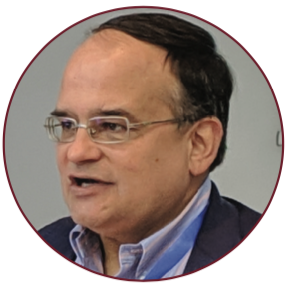 the label “capital” on something, we take for granted it has a natural right to reproduce itself because it helps to create value. The issue arises when capital disconnects from any productive process and from reality itself, when it becomes pure abstraction, where it reproduces itself in a fictitious way without the backing of any human activity. the label “capital” on something, we take for granted it has a natural right to reproduce itself because it helps to create value. The issue arises when capital disconnects from any productive process and from reality itself, when it becomes pure abstraction, where it reproduces itself in a fictitious way without the backing of any human activity.
In an increasingly financialized world, the demands of rentism do not leave room for taking care of human wellbeing and the health of the biosphere. The transformation of economic processes cannot happen without a shift in our behaviour as consumers. This is one of the many reasons to address Inner Transformation as another perspective of systemic change. It is a call to individuals to move from awareness and the anxiety it brings towards higher levels of consciousness about ourrelationships with others and with nature as a whole.
Conversations on truly new paradigm(s) are actually just starting. They have to include unheard voices and angles, avoid confrontations leading to binary dilemmas, absorb from all wisdoms and contribute to making sense of the world in a different way. Complex systems do not change in alignment with purposeful planning, they get unstuck through mutual learning. By connecting and supporting those who are at the forefront of stimulating and shaping them, ENCI reinforces a shared commitment and interest in forming long term alliances with each other. This is our unique contribution to the reconciliation of humanity with life as a whole.
For the full paper, please click here.
– Carlos Alvarez-Pereira & Other Contributors
|
 |
A New Conceptual System for Humanity
|
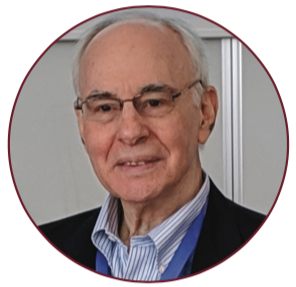 The Dubrovnik roundtable involved a conscious effort by a diverse group to challenge the existing worldviews that serve as the intellectual foundation for the institutions, policies, strategies and actions which pose existential threats to the future of global civilization and the biosphere. Becoming conscious of implicit assumptions helped remove barriers to creative thinking and action. The degree of agreement among participants on the changes needed in thinking, values and institutions was quite remarkable. It represents an important step in the right direction which needs to be followed by more in-depth, systematic exploration of the alternatives and ultimately to a new consensus on comprehensive solutions to the human dilemma. The Dubrovnik roundtable involved a conscious effort by a diverse group to challenge the existing worldviews that serve as the intellectual foundation for the institutions, policies, strategies and actions which pose existential threats to the future of global civilization and the biosphere. Becoming conscious of implicit assumptions helped remove barriers to creative thinking and action. The degree of agreement among participants on the changes needed in thinking, values and institutions was quite remarkable. It represents an important step in the right direction which needs to be followed by more in-depth, systematic exploration of the alternatives and ultimately to a new consensus on comprehensive solutions to the human dilemma.
History confirms that the evolution of human consciousness lies along a path from lesser to greater
|
recognition of the fundamental value and rights of each human being. It sketches a pathway toward the wider and more equitable distribution of freedom, knowledge, rights and social power. Humanity has already progressed far on this trajectory from the time when the law of the jungle, slavery, colonial imperialism, authoritarianism, war and genocide were considered natural and inevitable. But we have much further to go.
Envisioning in detail a future based on values that affirm the dignity of every individual can help us identify the core principles and institutional changes needed for a sustainable, human-centered development paradigm. In practice this means concretely imagining how life will flourish in a world in which the 17 SDGs have been fully realized for all humanity. That will indeed constitute a new paradigm and the emergence of the first truly global civilization.
– Garry Jacobs
Chief Executive Officer,
WAAS & World University Consortium (WUC)
|
|
Sustainable System Change
|
All actions begin in the mind. Modern society, and its extensive environmental, social and economic problems reflect our limited, reductionistic thinking and consciousness. Higher-level, whole system thinking is needed to resolve major problems and achieve true, long-term prosperity. The Emerging New Civilization Initiative (ENCI) seeks to manifest in human society the immense vitality, cooperation and widespread prosperity already present in nature. Predicting existential crises, projecting abstract theories of change and identifying specialized practical strategies are not sufficient. Attaining a new civilization before current systems collapse requires a clear vision and strong emphasis on practical action. Inspiring and mobilizing citizens to unleash a global social movement will also be essential to bring about the neededtransformation.
|
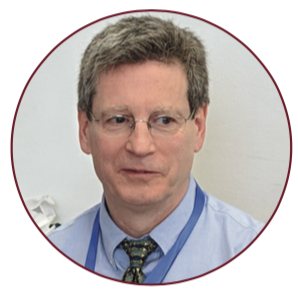 Engaging the corporate and financial sectors through new paradigm system change focused investing is one of the most practical short-term strategies for achieving sustainable society. Uniting and empowering citizens to work together on their many common interests is another high leverage option. Working with allies, the ENCI will develop and help to implement these and other new civilization concepts and strategies. Engaging the corporate and financial sectors through new paradigm system change focused investing is one of the most practical short-term strategies for achieving sustainable society. Uniting and empowering citizens to work together on their many common interests is another high leverage option. Working with allies, the ENCI will develop and help to implement these and other new civilization concepts and strategies.
– Frank Dixon
Sustainability & System Change
Consultant, USA; WAAS Associate Fellow
|
|
 |
New Civilization with Heart
|
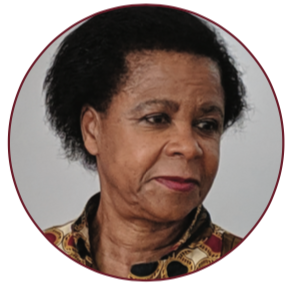 Dubrovnik’s aesthetic beauty; the blending of nature and human settlements; the sea, mountains and plains; history, present and the future we aspire to are all intermingled. Provocations and tenderness in walking together enabled this diverse group of people with a diversity of world views to go to places we might not have been ready to get to during our reflections on Emerging New Civilization(s). Dubrovnik’s aesthetic beauty; the blending of nature and human settlements; the sea, mountains and plains; history, present and the future we aspire to are all intermingled. Provocations and tenderness in walking together enabled this diverse group of people with a diversity of world views to go to places we might not have been ready to get to during our reflections on Emerging New Civilization(s).
The Warm Data Lab exposed some openings into the world of feelings and sense-making as we dared to love, trust and express our emotions about what and how we care for self, others and our biosphere. The dominance of the mind over heart was clearly in evidence as the discomfort with raw vulnerabilities got the better of some of us some of the time.
The appropriateness of our subject was a hot topic. Is it possible and/or desirable to dare to speak of a New civilization? Is it possible to speak of a singular Civilization? Is it not arrogant of us to imagine that we can tackle this huge complex subject? Is everything about the current civilization wrong? How do we give credit to the benefits of the current civilization?
The above questions exposed the risks of assuming that we can all see the same thing at the same time. Trans-contextual and context-specific views are critical to acknowledging that a multiplicity of views is possible and desirable. The dominant narrative of “Western culture”
|
is not only creating blind spots about “most of the world” views, but it is the product of the erasure of a multiplicity of complex civilizations that have evolved from the Mother Continent of Africa. Africa’s centrality in the evolution of the human story has been underplayed and in some cases obliterated.
Blind spots also obscure the destruction that the dominant narrative has visited on the original culture that enabled humans to evolve as inextricably interconnected, interdependent whilst also living in harmony with nature. Indigenous societies that have managed to hold on to the essence of our humanity are to be found in most parts of the world.
We could learn more about these cultures in a Warm Lab situation so we can distil the essence of values, sense making and vulnerabilities that are at the heart of our humanity. Understanding the interconnectedness and richness of what makes us human might open more windows to the feeling, intuitive and non-verbal communications within and between us. It would also help us feel and get closer to nature in a sensual way that makes us better attuned to living in harmony with it.
There is already an Emergence of a New Civilization that transcends locality and reaches deep into our hearts, spirits and minds. Science is helping us understand the heart/mind connections better to admit to complexities and push us into accepting our vulnerabilities and to celebrate them in loving, trusting and caring relationships.
– Mamphela Ramphele, Co-President,
Club of Rome; WAAS Fellow, South Africa
|
|
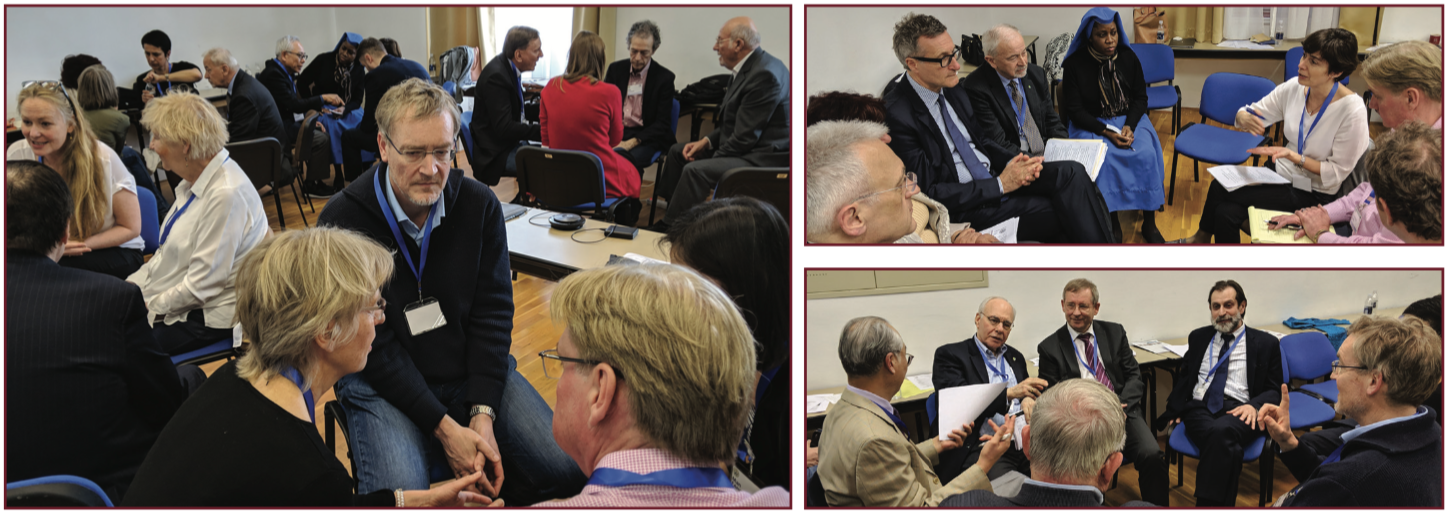 |
Change in Worldviews
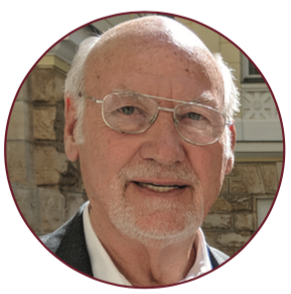 Prevailing worldviews are the main source of the existential threats posed by global society today and the principal obstacle to a transition into an equitable and sustainable world civilization. Such a transition requires a new consciousness and mutual learning on projects based on a social and ecological orientation and a shift from competition to cooperation. Prevailing worldviews are the main source of the existential threats posed by global society today and the principal obstacle to a transition into an equitable and sustainable world civilization. Such a transition requires a new consciousness and mutual learning on projects based on a social and ecological orientation and a shift from competition to cooperation.
Science and technology must be reoriented to serve human well-being. Human-centered education has a key role to play in integrating the biosphere and society.
– Erich Hoedl
Vice-President, European Academy for
Sciences and Arts, Austria; WAAS Trustee
|
Pathways Towards a New Civilization
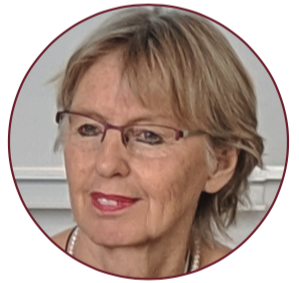 How can we help the new paradigm emerge that reshapes our role as humans within the greater Earth Community? What is the new operating system for humankind that is built on human dignity, respect for nature and protection of the commons? These questions together with others regarding transformations, climate emergency and biodiversity loss need to be examined in order to begin a thinking process and foster a narrative of possibilities, a future civilization—or even future civilizations— which operate according to principles that enhance planetary aliveness and humankind’s vitality. How can we help the new paradigm emerge that reshapes our role as humans within the greater Earth Community? What is the new operating system for humankind that is built on human dignity, respect for nature and protection of the commons? These questions together with others regarding transformations, climate emergency and biodiversity loss need to be examined in order to begin a thinking process and foster a narrative of possibilities, a future civilization—or even future civilizations— which operate according to principles that enhance planetary aliveness and humankind’s vitality.
– Petra Künkel, Executive Director,
Collective Leadership Institute, Germany;
Executive Committee Member, COR
|
Trans-disciplinary, Trans-ideological Approach
|
|
The major challenges confronting humanity in the 21stcentury are income inequality, unemployment, economic, political and military interventions, forced migrations, intercultural conflicts, depletion of natural resources, and climate change. Discussions on these problems should lead to an inclusive and coherent new paradigm of human development which provides sustainable development of mankind. The model should have a multiple disciplinary and trans-ideological character. It should represent a unity of global, regional and national views. In this endeavor, one should start from the Sustainable Development Goals.
The new paradigm of human development requires a trans-ideological approach in which the two predominant ideologies of our times—neoliberalism and Chinese socialism—and also other relevant ideologies will be analyzed in detail
|
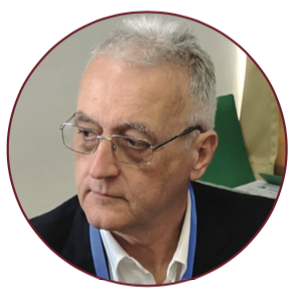 in a multidisciplinary and interdisciplinary way to provide the basis for a transdisciplinary synthesis. in a multidisciplinary and interdisciplinary way to provide the basis for a transdisciplinary synthesis.
The framework of the task should be determined by the major problems confronting humanity today. The result would not be a new ideology, but a general model that would be able to take various special forms, each defined by starting from a certain ideology and going beyond it.
– Nebojša Nešković, WAAS Secretary-General; Former Head of TESLA Project,
Vinča Institute of Nuclear Sciences, Serbia
|
What Transformation(s)?
|
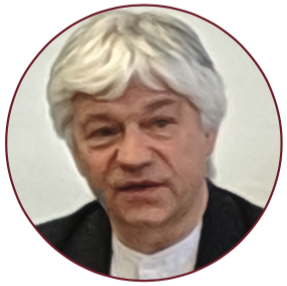 The question of transformation is relevant to WAAS and COR insofar as we share an agenda for bringing about a global transformation towards a more just and fully sustainable way of life for humanity, to ensure our survival in the face of the current crisis of inequality and rapid environmental collapse. Our hope is to provide leadership as agents of transformation. Our individual inner growth and character is an important prerequisite. Another is our ability to bond as a group around not only a shared intellectual understanding of what needs to be done, but also a strong, heartfelt commitment to this cause and a sense of mutual trust and support, building on respect for our diverse skills and experiences. The question of transformation is relevant to WAAS and COR insofar as we share an agenda for bringing about a global transformation towards a more just and fully sustainable way of life for humanity, to ensure our survival in the face of the current crisis of inequality and rapid environmental collapse. Our hope is to provide leadership as agents of transformation. Our individual inner growth and character is an important prerequisite. Another is our ability to bond as a group around not only a shared intellectual understanding of what needs to be done, but also a strong, heartfelt commitment to this cause and a sense of mutual trust and support, building on respect for our diverse skills and experiences.
|
Art and science both have roles to play. They are both techniques or methods, and are essentially value- neutral. Their benefit depends on the way in which art or science is used. Scientists can be intuitive in their approach to finding answers and likewise, artists may rationally analyze contemporary conditions in order to portray them accurately with the help of an artistic medium. Science is particularly useful in finding facts and technological solutions. The arts are more effec- tive at communicating insights and mobilizing people for action through appeals to the emotions. Arts tend to emphasize intuition more than sciences, and hence there is a complementarity, as was recognized by the founders of WAAS.
– Thomas Reuter
Professor, University of Melbourne, Australia; WAAS Fellow
|
|
Obstacles to Transformation
 Some of the biggest obstacles to the emerging new civilization are our own mindset and the existing structures including regulations, financial systems, businesses, economies and education systems. These systems are still modelled after archaic and dysfunctional 20th century systems and the prevailing mindset does not provide the necessary leadership to bring about transformation. ENCI provides an invitation, know-how, and a framework to awakened individuals, investors, entrepreneurs, business people, and other agents of transformation to collaborate to bypass outdated and destructive systems and lead us into the future. This initiative provides hope, direction and encouragement to use our passion, resources, intelligence and creativity to transform the global civilizations toward holistic sustainability. Some of the biggest obstacles to the emerging new civilization are our own mindset and the existing structures including regulations, financial systems, businesses, economies and education systems. These systems are still modelled after archaic and dysfunctional 20th century systems and the prevailing mindset does not provide the necessary leadership to bring about transformation. ENCI provides an invitation, know-how, and a framework to awakened individuals, investors, entrepreneurs, business people, and other agents of transformation to collaborate to bypass outdated and destructive systems and lead us into the future. This initiative provides hope, direction and encouragement to use our passion, resources, intelligence and creativity to transform the global civilizations toward holistic sustainability.
– Mariana Bozesan
Member, COR; Founder, AQAL AG,
AQAL Capital, AQAL Foundation, Germany
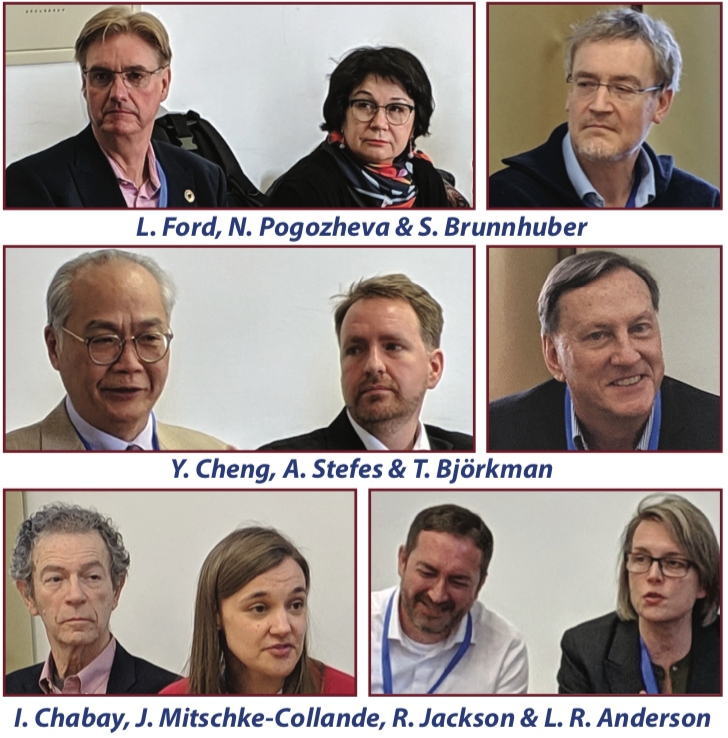
|
Defining Civilization and Finding a Common Ground
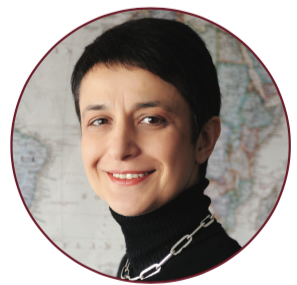 Civilization refers to the overall technological, spiritual, political and social development of humanity. Civilization refers to the overall technological, spiritual, political and social development of humanity.
In a narrower sense, a civilization comprises the states that existed on the same territory in a longer period and produced specific cultural goods of universal value.
– Vesna Vučinić,
Professor, University of Belgrade, Serbia; WAAS Fellow
 The meeting facilitated the engagement between members of WAAS and the Club of Rome seeking common ground for collaborative initiatives. The meeting facilitated the engagement between members of WAAS and the Club of Rome seeking common ground for collaborative initiatives.
– Fadwa El Guindi,
Retiree Professor, University of California, USA; WAAS Fellow
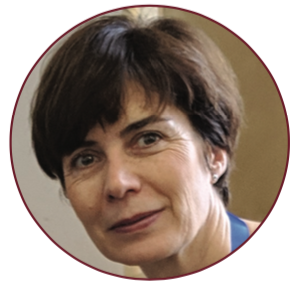 Trying to define the idea of civilization and its different interpretations was a challenging task and one of the main points of discussion. The magnitude of the task of identifying the main features of the New Emerging Civilization was such that it is not easy to see what kind of tangible outcome will come out of the seminar. In any case, it has been an enriching, intellectually challenging and interesting experience. Trying to define the idea of civilization and its different interpretations was a challenging task and one of the main points of discussion. The magnitude of the task of identifying the main features of the New Emerging Civilization was such that it is not easy to see what kind of tangible outcome will come out of the seminar. In any case, it has been an enriching, intellectually challenging and interesting experience.
– Cristina Manzano,
Editor-in-chief, esglobal, Spain; Associate Member, COR
|
 |





 On March 21-22, 2019 WAAS partnered with the Club of Rome (COR) to conduct a two-day interdisciplinary roundtable at the Inter-University Centre, Dubrovnik to explore profound questions and catalytic ideas regarding the evolution of global society and strategies to accelerate the transition to a human-centered, inclusive and sustainable development paradigm for humanity. Forty scientists and sustainability practitioners from WAAS and COR exchanged views in a highly interactive roundtable format designed by Carlos-Alvarez Pereira, which included two Warm Data Labs facilitated by Nora Bateson.
On March 21-22, 2019 WAAS partnered with the Club of Rome (COR) to conduct a two-day interdisciplinary roundtable at the Inter-University Centre, Dubrovnik to explore profound questions and catalytic ideas regarding the evolution of global society and strategies to accelerate the transition to a human-centered, inclusive and sustainable development paradigm for humanity. Forty scientists and sustainability practitioners from WAAS and COR exchanged views in a highly interactive roundtable format designed by Carlos-Alvarez Pereira, which included two Warm Data Labs facilitated by Nora Bateson. the label “capital” on something, we take for granted it has a natural right to reproduce itself because it helps to create value. The issue arises when capital disconnects from any productive process and from reality itself, when it becomes pure abstraction, where it reproduces itself in a fictitious way without the backing of any human activity.
the label “capital” on something, we take for granted it has a natural right to reproduce itself because it helps to create value. The issue arises when capital disconnects from any productive process and from reality itself, when it becomes pure abstraction, where it reproduces itself in a fictitious way without the backing of any human activity. The Dubrovnik roundtable involved a conscious effort by a diverse group to challenge the existing worldviews that serve as the intellectual foundation for the institutions, policies, strategies and actions which pose existential threats to the future of global civilization and the biosphere. Becoming conscious of implicit assumptions helped remove barriers to creative thinking and action. The degree of agreement among participants on the changes needed in thinking, values and institutions was quite remarkable. It represents an important step in the right direction which needs to be followed by more in-depth, systematic exploration of the alternatives and ultimately to a new consensus on comprehensive solutions to the human dilemma.
The Dubrovnik roundtable involved a conscious effort by a diverse group to challenge the existing worldviews that serve as the intellectual foundation for the institutions, policies, strategies and actions which pose existential threats to the future of global civilization and the biosphere. Becoming conscious of implicit assumptions helped remove barriers to creative thinking and action. The degree of agreement among participants on the changes needed in thinking, values and institutions was quite remarkable. It represents an important step in the right direction which needs to be followed by more in-depth, systematic exploration of the alternatives and ultimately to a new consensus on comprehensive solutions to the human dilemma. Engaging the corporate and financial sectors through new paradigm system change focused investing is one of the most practical short-term strategies for achieving sustainable society. Uniting and empowering citizens to work together on their many common interests is another high leverage option. Working with allies, the ENCI will develop and help to implement these and other new civilization concepts and strategies.
Engaging the corporate and financial sectors through new paradigm system change focused investing is one of the most practical short-term strategies for achieving sustainable society. Uniting and empowering citizens to work together on their many common interests is another high leverage option. Working with allies, the ENCI will develop and help to implement these and other new civilization concepts and strategies. Dubrovnik’s aesthetic beauty; the blending of nature and human settlements; the sea, mountains and plains; history, present and the future we aspire to are all intermingled. Provocations and tenderness in walking together enabled this diverse group of people with a diversity of world views to go to places we might not have been ready to get to during our reflections on Emerging New Civilization(s).
Dubrovnik’s aesthetic beauty; the blending of nature and human settlements; the sea, mountains and plains; history, present and the future we aspire to are all intermingled. Provocations and tenderness in walking together enabled this diverse group of people with a diversity of world views to go to places we might not have been ready to get to during our reflections on Emerging New Civilization(s). Prevailing worldviews are the main source of the existential threats posed by global society today and the principal obstacle to a transition into an equitable and sustainable world civilization. Such a transition requires a new consciousness and mutual learning on projects based on a social and ecological orientation and a shift from competition to cooperation.
Prevailing worldviews are the main source of the existential threats posed by global society today and the principal obstacle to a transition into an equitable and sustainable world civilization. Such a transition requires a new consciousness and mutual learning on projects based on a social and ecological orientation and a shift from competition to cooperation. How can we help the new paradigm emerge that reshapes our role as humans within the greater Earth Community? What is the new operating system for humankind that is built on human dignity, respect for nature and protection of the commons? These questions together with others regarding transformations, climate emergency and biodiversity loss need to be examined in order to begin a thinking process and foster a narrative of possibilities, a future civilization—or even future civilizations— which operate according to principles that enhance planetary aliveness and humankind’s vitality.
How can we help the new paradigm emerge that reshapes our role as humans within the greater Earth Community? What is the new operating system for humankind that is built on human dignity, respect for nature and protection of the commons? These questions together with others regarding transformations, climate emergency and biodiversity loss need to be examined in order to begin a thinking process and foster a narrative of possibilities, a future civilization—or even future civilizations— which operate according to principles that enhance planetary aliveness and humankind’s vitality. in a multidisciplinary and interdisciplinary way to provide the basis for a transdisciplinary synthesis.
in a multidisciplinary and interdisciplinary way to provide the basis for a transdisciplinary synthesis. The question of transformation is relevant to WAAS and COR insofar as we share an agenda for bringing about a global transformation towards a more just and fully sustainable way of life for humanity, to ensure our survival in the face of the current crisis of inequality and rapid environmental collapse. Our hope is to provide leadership as agents of transformation. Our individual inner growth and character is an important prerequisite. Another is our ability to bond as a group around not only a shared intellectual understanding of what needs to be done, but also a strong, heartfelt commitment to this cause and a sense of mutual trust and support, building on respect for our diverse skills and experiences.
The question of transformation is relevant to WAAS and COR insofar as we share an agenda for bringing about a global transformation towards a more just and fully sustainable way of life for humanity, to ensure our survival in the face of the current crisis of inequality and rapid environmental collapse. Our hope is to provide leadership as agents of transformation. Our individual inner growth and character is an important prerequisite. Another is our ability to bond as a group around not only a shared intellectual understanding of what needs to be done, but also a strong, heartfelt commitment to this cause and a sense of mutual trust and support, building on respect for our diverse skills and experiences. Some of the biggest obstacles to the emerging new civilization are our own mindset and the existing structures including regulations, financial systems, businesses, economies and education systems. These systems are still modelled after archaic and dysfunctional 20th century systems and the prevailing mindset does not provide the necessary leadership to bring about transformation. ENCI provides an invitation, know-how, and a framework to awakened individuals, investors, entrepreneurs, business people, and other agents of transformation to collaborate to bypass outdated and destructive systems and lead us into the future. This initiative provides hope, direction and encouragement to use our passion, resources, intelligence and creativity to transform the global civilizations toward holistic sustainability.
Some of the biggest obstacles to the emerging new civilization are our own mindset and the existing structures including regulations, financial systems, businesses, economies and education systems. These systems are still modelled after archaic and dysfunctional 20th century systems and the prevailing mindset does not provide the necessary leadership to bring about transformation. ENCI provides an invitation, know-how, and a framework to awakened individuals, investors, entrepreneurs, business people, and other agents of transformation to collaborate to bypass outdated and destructive systems and lead us into the future. This initiative provides hope, direction and encouragement to use our passion, resources, intelligence and creativity to transform the global civilizations toward holistic sustainability.
 Civilization refers to the overall technological, spiritual, political and social development of humanity.
Civilization refers to the overall technological, spiritual, political and social development of humanity. The meeting facilitated the engagement between members of WAAS and the Club of Rome seeking common ground for collaborative initiatives.
The meeting facilitated the engagement between members of WAAS and the Club of Rome seeking common ground for collaborative initiatives. Trying to define the idea of civilization and its different interpretations was a challenging task and one of the main points of discussion. The magnitude of the task of identifying the main features of the New Emerging Civilization was such that it is not easy to see what kind of tangible outcome will come out of the seminar. In any case, it has been an enriching, intellectually challenging and interesting experience.
Trying to define the idea of civilization and its different interpretations was a challenging task and one of the main points of discussion. The magnitude of the task of identifying the main features of the New Emerging Civilization was such that it is not easy to see what kind of tangible outcome will come out of the seminar. In any case, it has been an enriching, intellectually challenging and interesting experience.